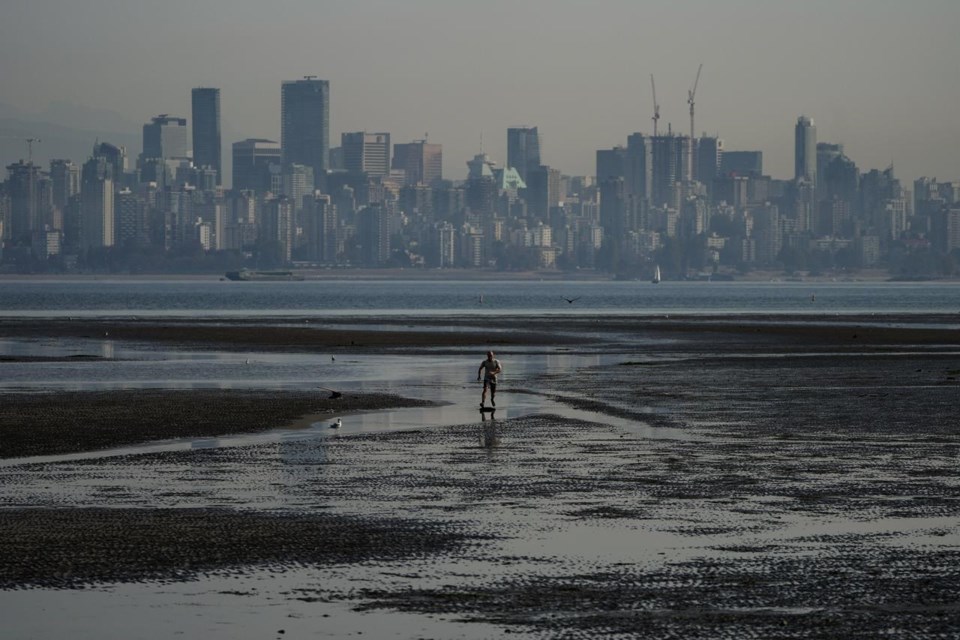VANCOUVER — Smoke from a wildfire could be seen across Vancouver as firefighters in West Vancouver responded to the blaze on the slopes of Cypress Falls Park, not far from the neighbourhood of Caulfeild.
West Vancouver fire duty chief Matt Furlot said crews responded Friday morning to the blaze in a heavily wooded area with many homes and businesses nearby.
The BC Wildfire Service said six helicopters, crews and an officer from the service are working to contain the fire.
The fire is burning east of Horseshoe Bay and is estimated at two hectares in size, but the fire department said it isn't growing.
"Trails in the vicinity are closed. Please stay away from the area until further notice," the department said on Twitter Friday.
The BC Wildfire Service said in a statement that it is typical for a wildfire season to extend into October.
"What is unusual for the time of year are the widespread drought conditions we are facing and the number of new wildfire starts per week," it said.
The B.C. Wildfire dashboard shows 63 new fires since Oct. 7, nine of them since Wednesday.
The service said this is five times higher than the average for this time of year. It said this trend would likely continue for as long as the drought persists.
Conditions across the Lower Mainland remain extremely dry, with less than 20 millimetres of rain recorded in the area since early July. Drought conditions in the region are at the top of the 1-to-5 scale, which indicates economic impacts are almost certain to occur.
Temperature records were set in 21 communities around the province, some of them breaking records established more than 100 years ago.
The wildfire service said that though more fires than usual have ignited this season, the area burned is "far below average."
A total of 119,546 hectares have been scorched across B.C. since April 1, which amounts to 45 per cent of the 20-year average for this time of year, the service said. The area burned by mid-October in 2021 was 869,242 hectares.
"(These) drought conditions may very well have an impact on future wildfire seasons, however the size, severity and number of current wildfires is very manageable at present," the service said.
Another newly ignited fire, burning near Port Alberni on central Vancouver Island, is 0.6 hectares in size.
Port Alberni set a temperature record of 25.7 C on Thursday, breaking the old record of 22.8 C set in 1916.
The wildfire service is reporting that the blaze is suspected to be human-caused.
It said the majority of wildfires in B.C. are caused by lightning, but it is common to see "a relative change in wildfire causes in the spring and fall months toward human-caused wildfire as the amount of lightning decreases."
The service said it would not be fair to assume the public has become complacent and the number of human-caused fires are still well below average this year. It said it is, however, maintaining widespread open burning prohibitions across the province while the drought persists.
This report by The Canadian Press was first published Oct. 14, 2022.
Brieanna Charlebois, The Canadian Press



